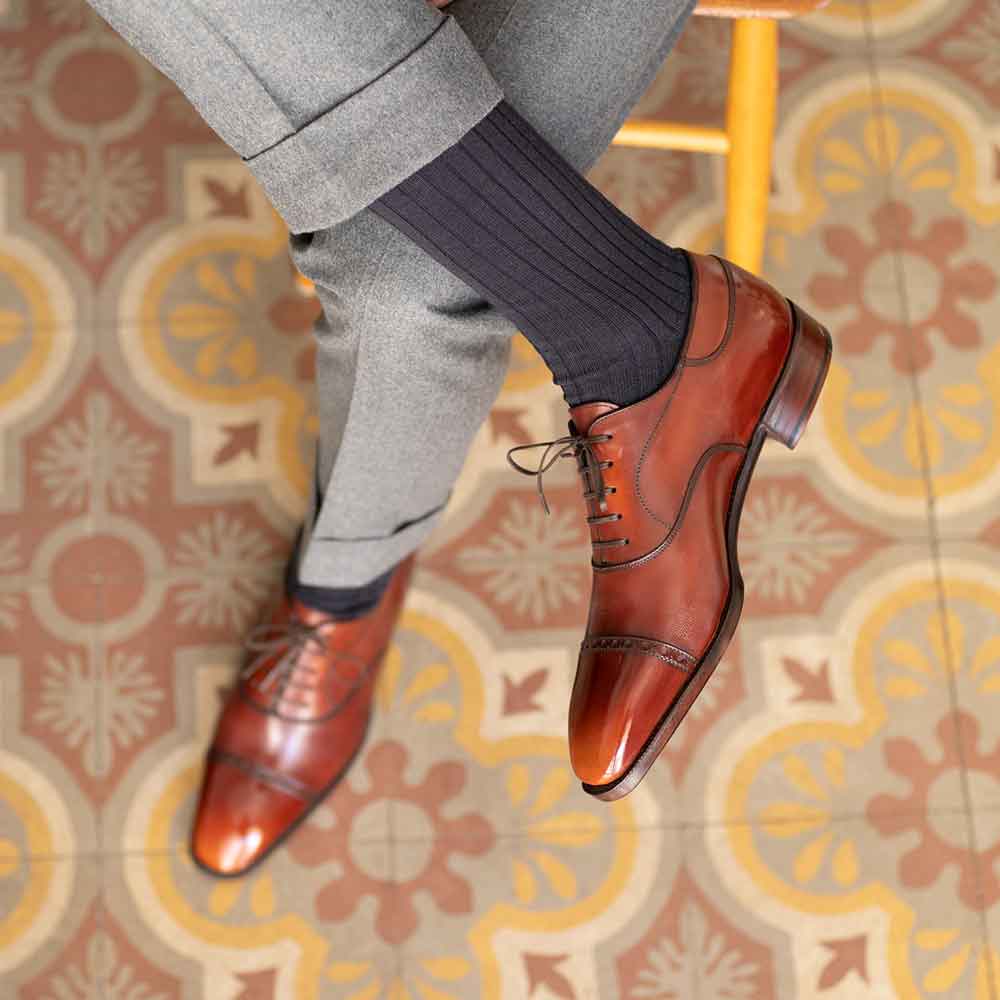
The Oxford VS Derby Shoe
If you're new to men's artisanal shoes, it's important to know the difference between two of the most common style of men's shoes, the oxford vs the derby.
Here at Norman Vilalta, we put together a short little guide for you to better understand the differences between an oxford and derby shoe so that you can more easily make an educated purchase decision.
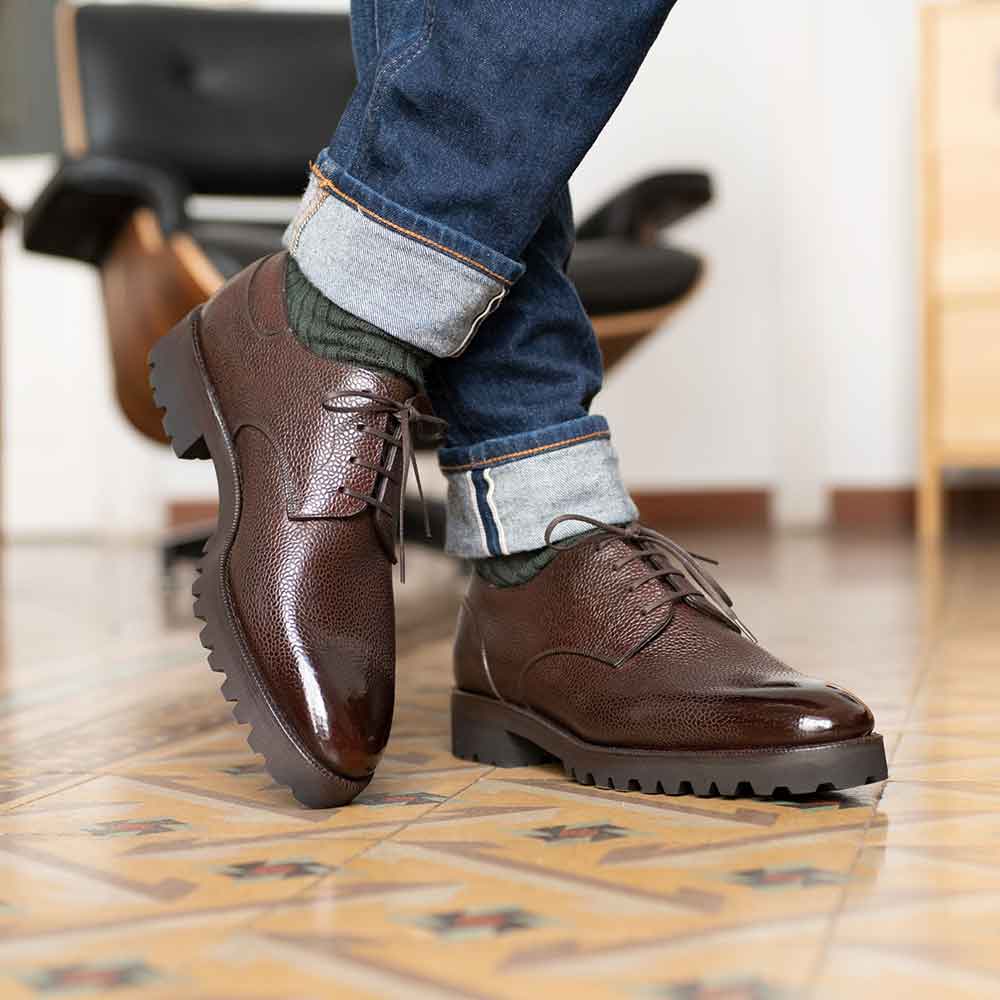
An oxford and a derby shoe are both types of formal footwear that are commonly worn with suits and formal attire.
However, there are some key differences between the two styles of shoes that you should understand.
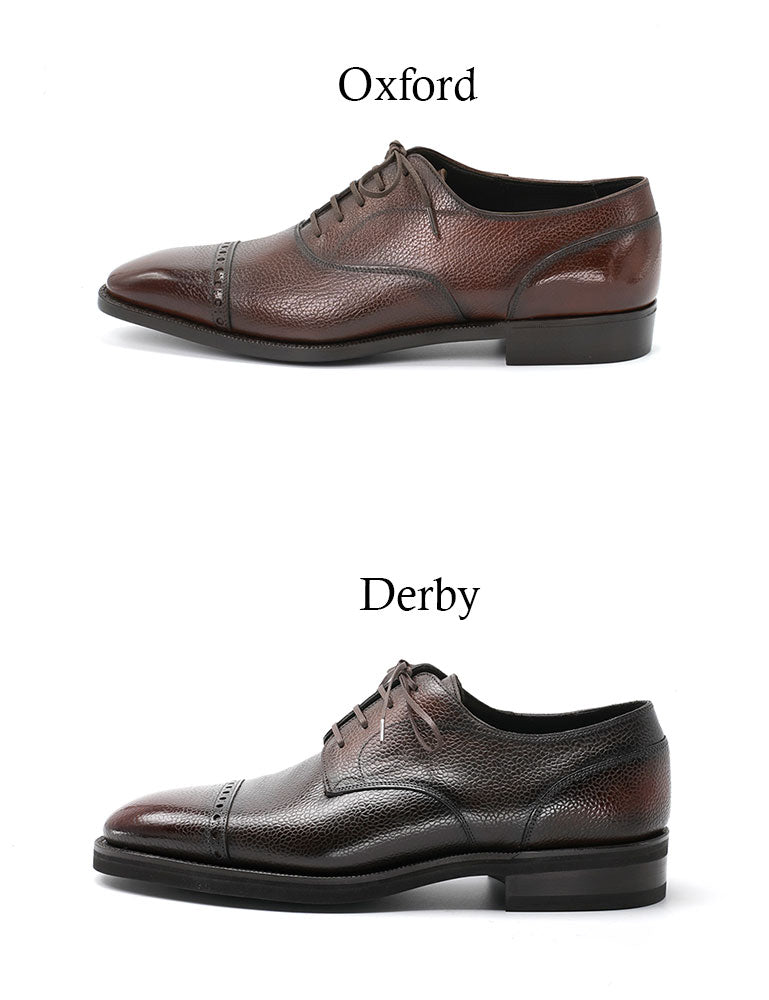
Lacing
One of the main differences between oxfords and derbys is the way the laces of the shoes are closed.
Oxfords have a closed lacing system, which means that the vamp of the shoe, the front part of the shoe that covers the top of the foot, is sewn above the facings, the section of the shoe that has the laces. This creates a sleek, streamlined appearance in the toebox.
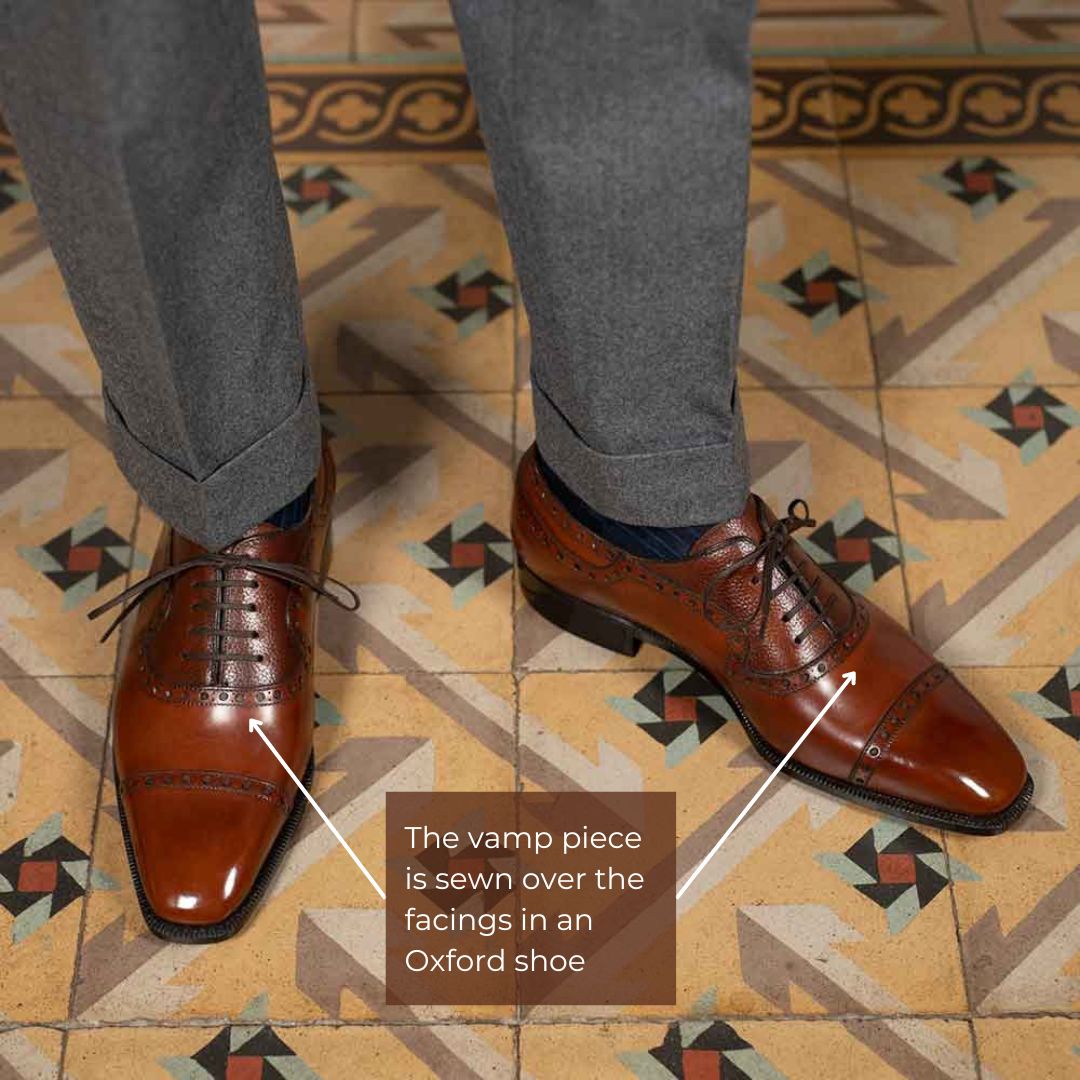
Note that the vamp of the shoe, the mid area of the shoe, is sewn over the facings, the leather pieces that cover the top of your foot, where the laces are sewn through.
This detail delivers a cleaner design but it also restricts how wide you can open the shoe when you put them on and lace them up.
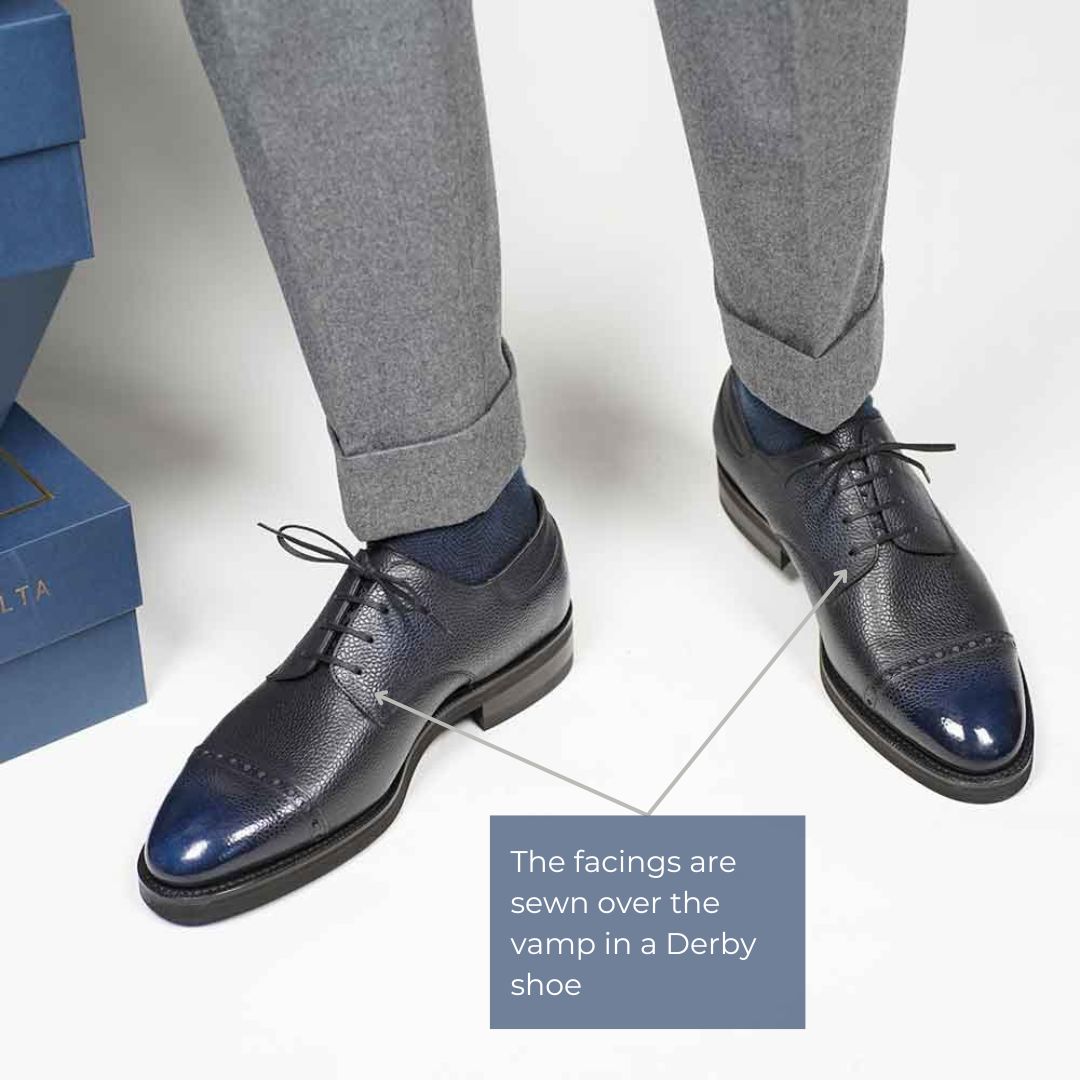
In contrast, derbys have an open lacing system, which means the facings of the shoe are sewn on top of the vamp.
This construction method allows you to open up the facings of the shoe wider when lacing the shoe, delivering more flexibility for those with a high-arch or wide feet.
This detail of the derby shoe also gives them a slightly more relaxed, less formal look.
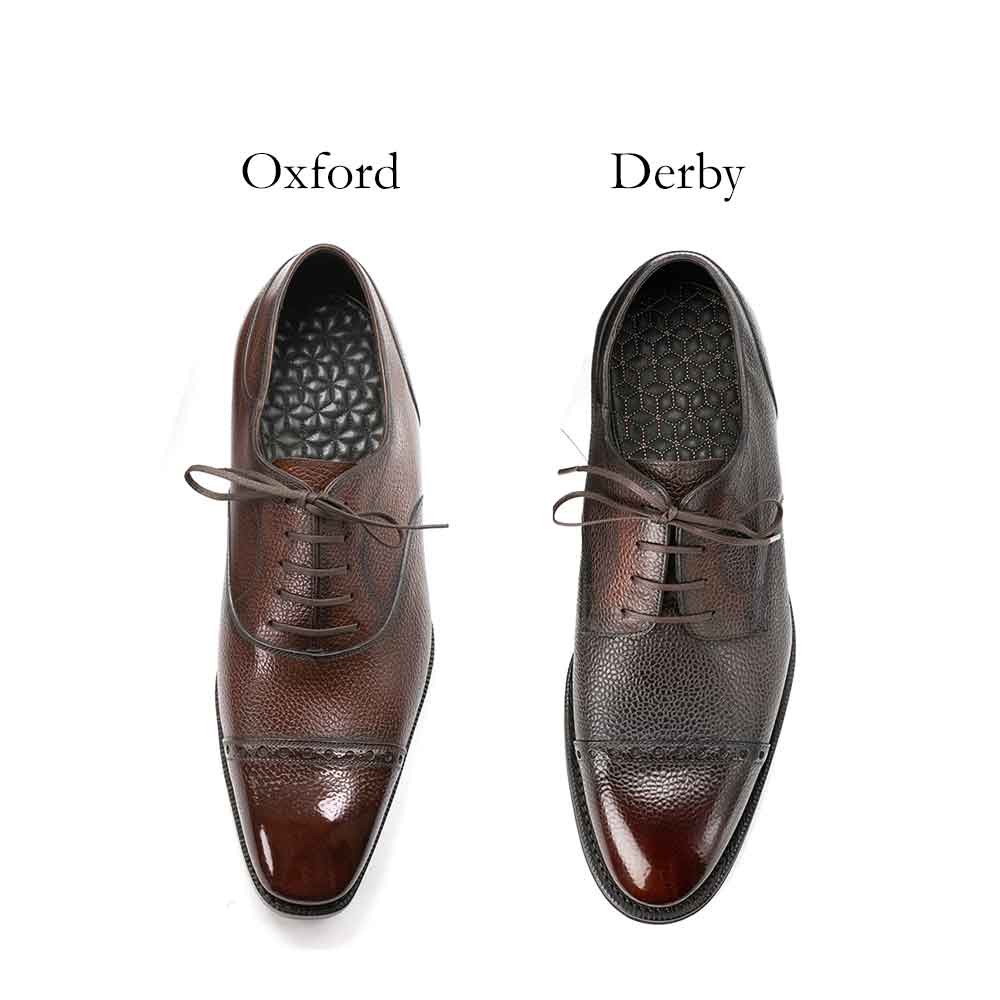
Toe Shape
Another difference between oxfords and derbys is the shape of the toe. Oxfords often have a more pointed, chiseled toe, which gives them a more formal, sophisticated appearance.
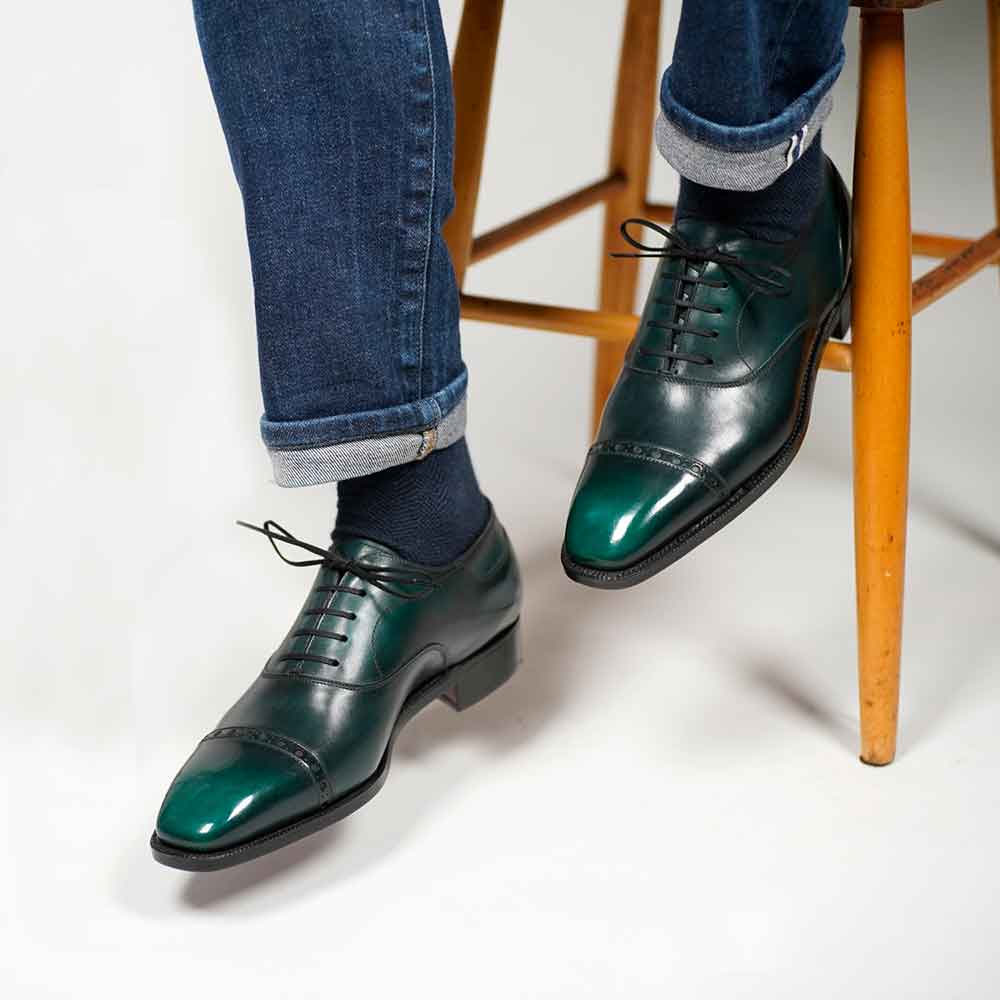
Oxfords often have a more pointed, chiseled toe, which gives them a more formal, sophisticated appearance.
Featured in photo:
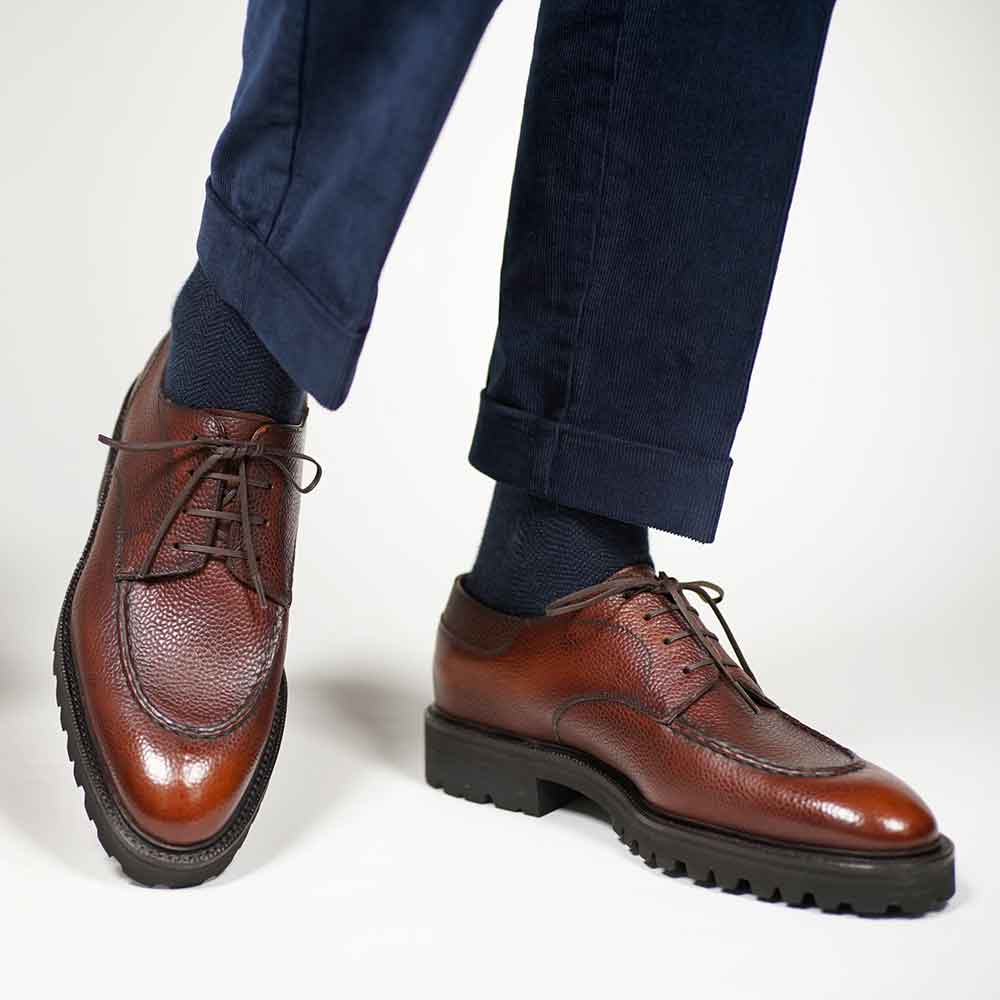
Derbys on the other hand often have a more rounded toe, which gives them a more casual, laid-back appearance.
Here our Gaspar Derby Shoe features a hand-stitched apron (moc toe) embellishment.
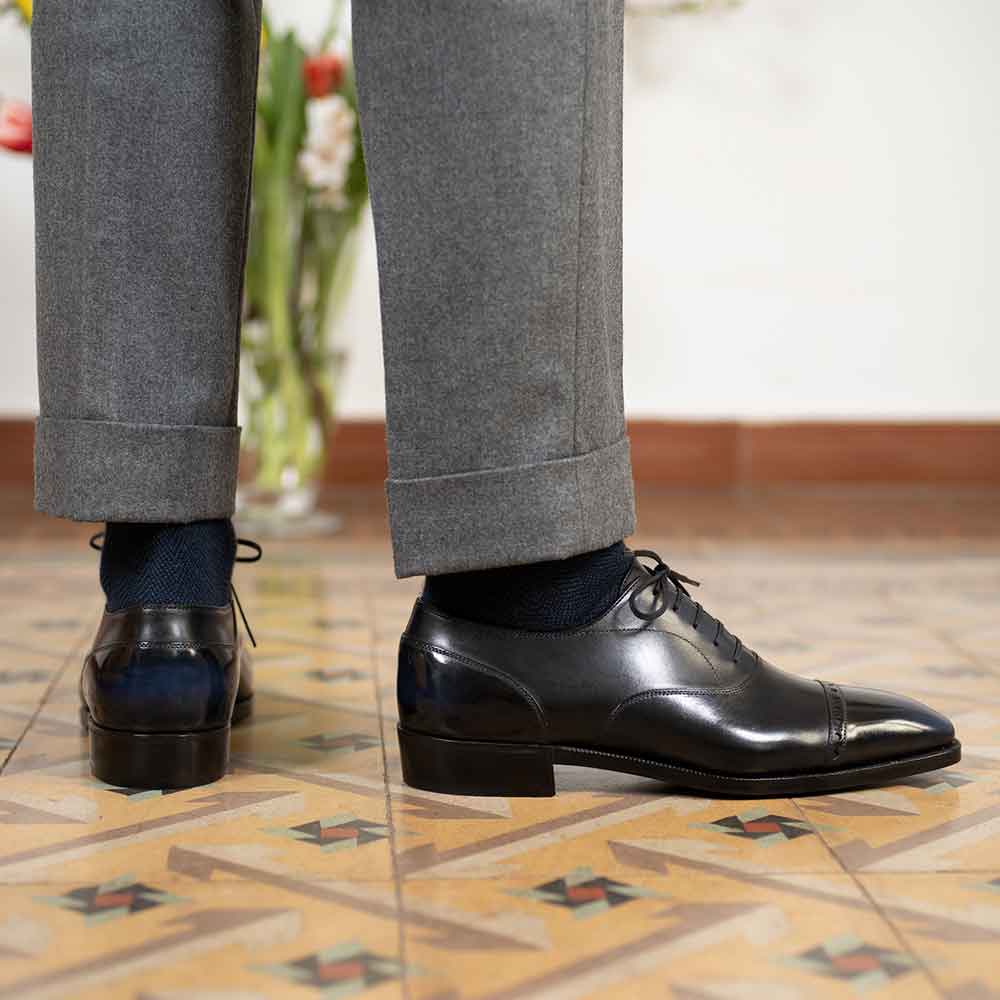
Formality
Overall, oxfords are considered more formal than derbys.
Oxfords are typically worn with formal attire, such as suits, tuxedos, and formal dresses.
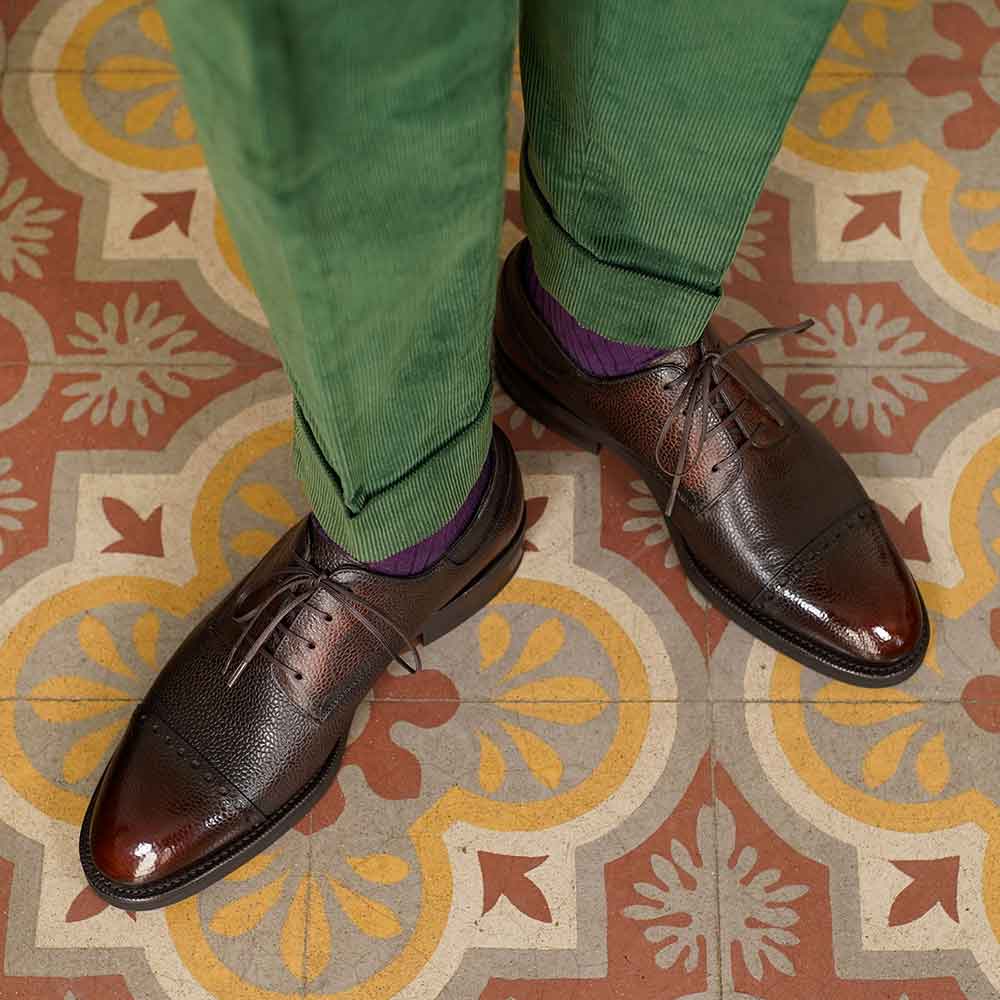
Derby Shoes, on the other hand, are considered less formal and are typically worn with more casual attire, such as khakis, corduroys and sports jackets.
Featured in photo:
Recognized by leaders in menswear and craftsmanship

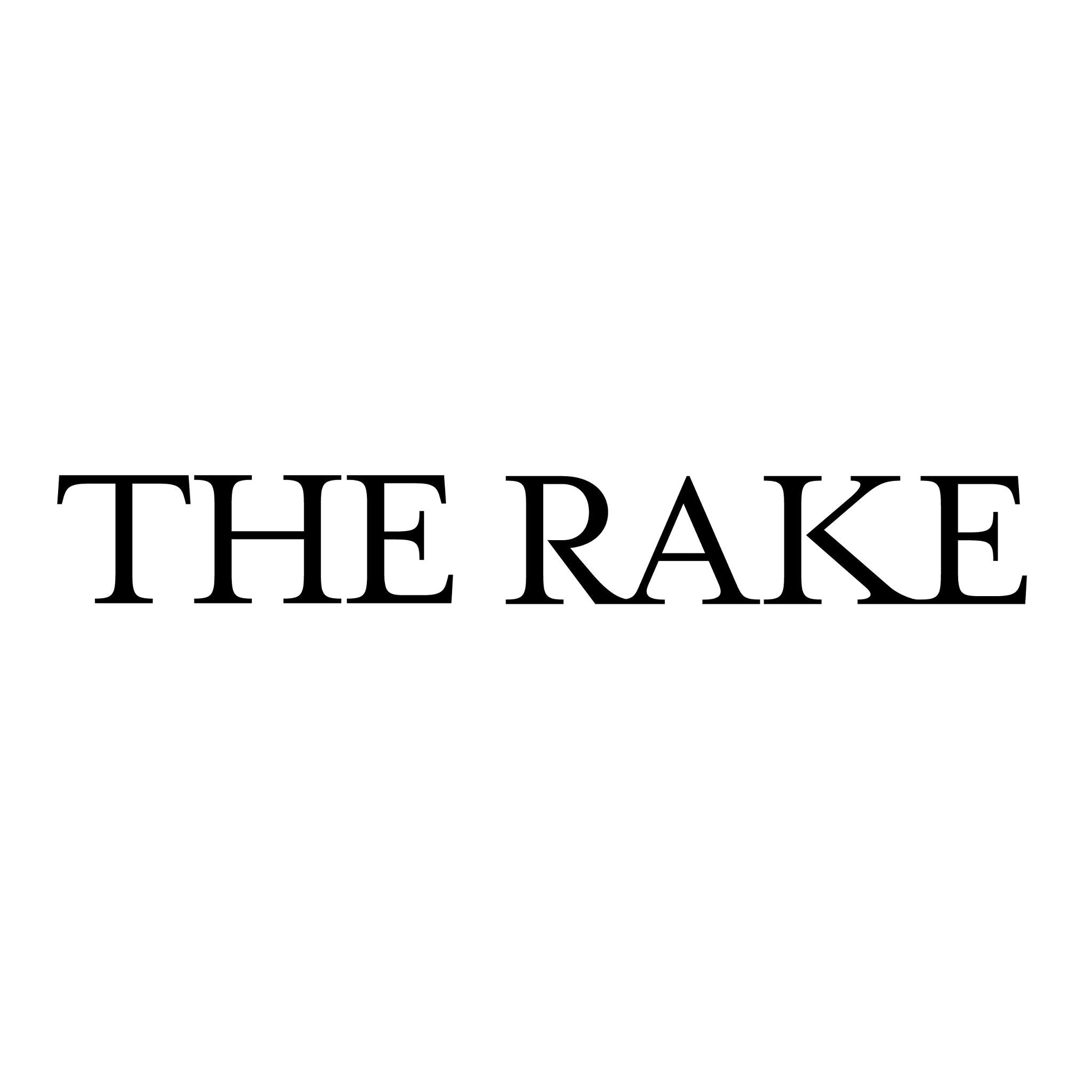
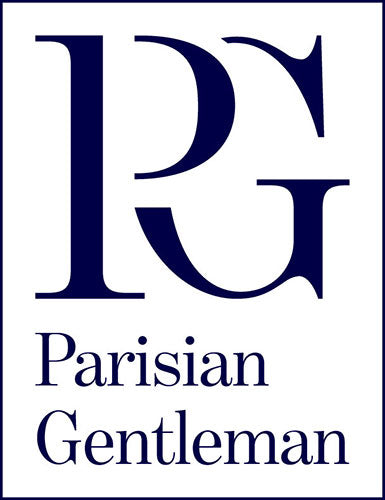




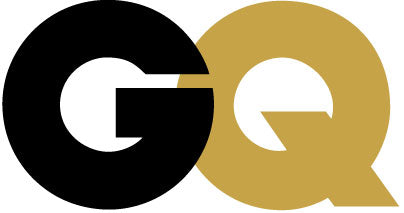
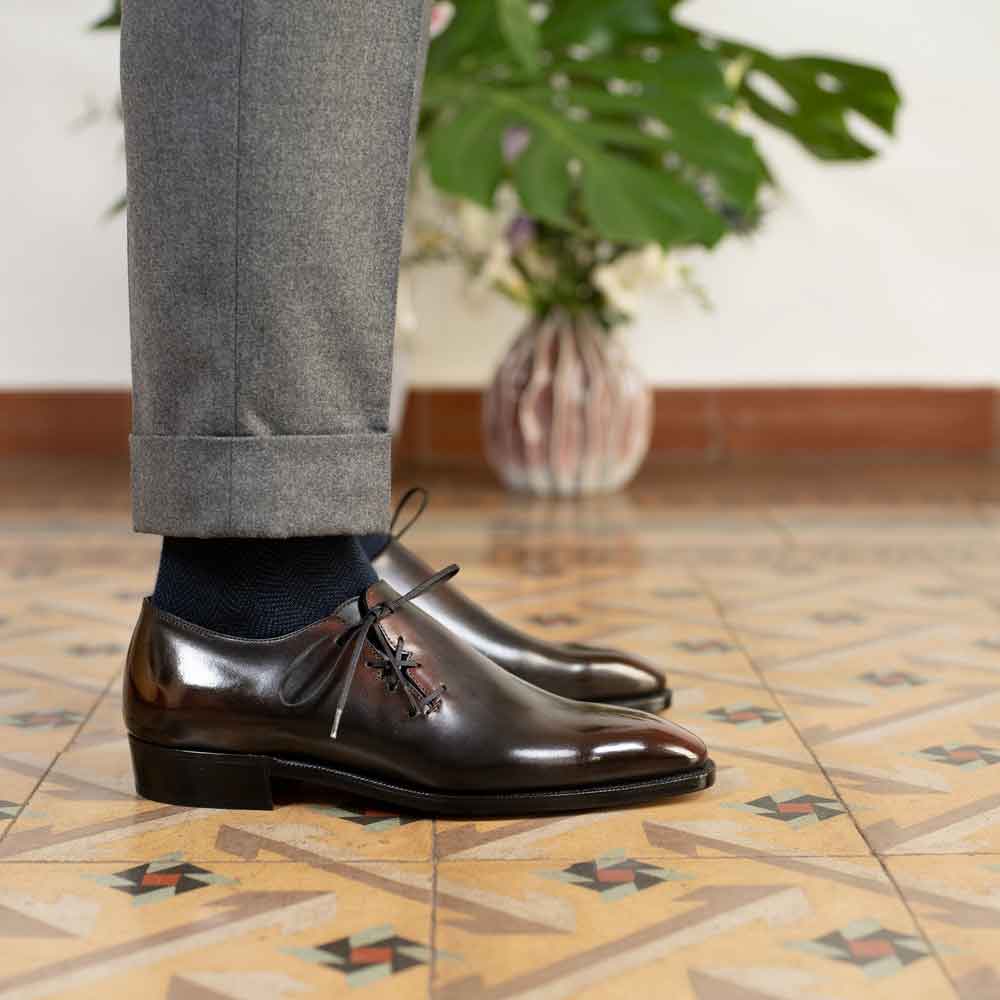
Occasion
Since Oxfords are slightly more formal, they are also typically worn to formal events, such as weddings, black-tie affairs, and formal business meetings.
For those who wear suits in the office, the Oxford is the more common choice since it is a more traditional business look.
Featured in photo:
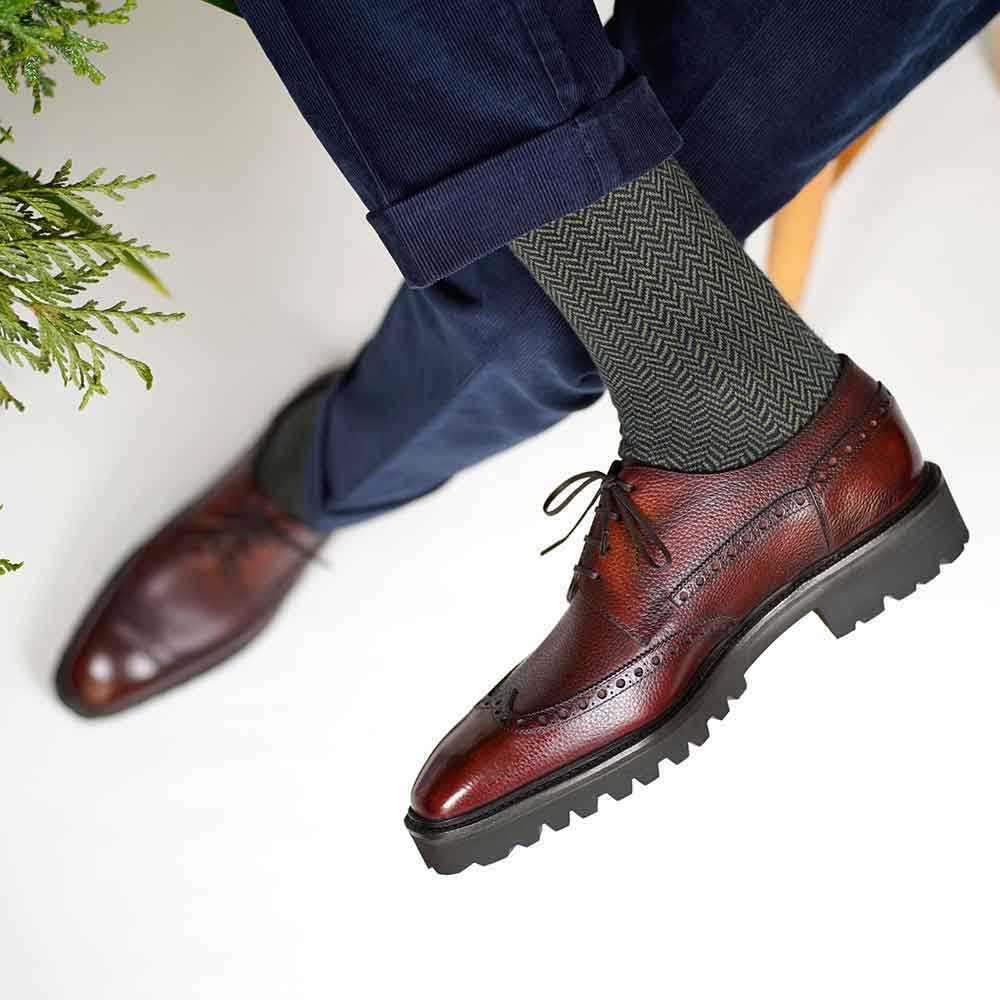
Derbys are more versatile and can be worn to a wider range of occasions, including casual business meetings and more relaxed social events. They aren't as serious as an oxford but are still buttoned up.
They are the perfect go-to alternative to sneakers and can be worn comfortably on a weekend trip, walk through the city or on a special date.
Featured in photo:
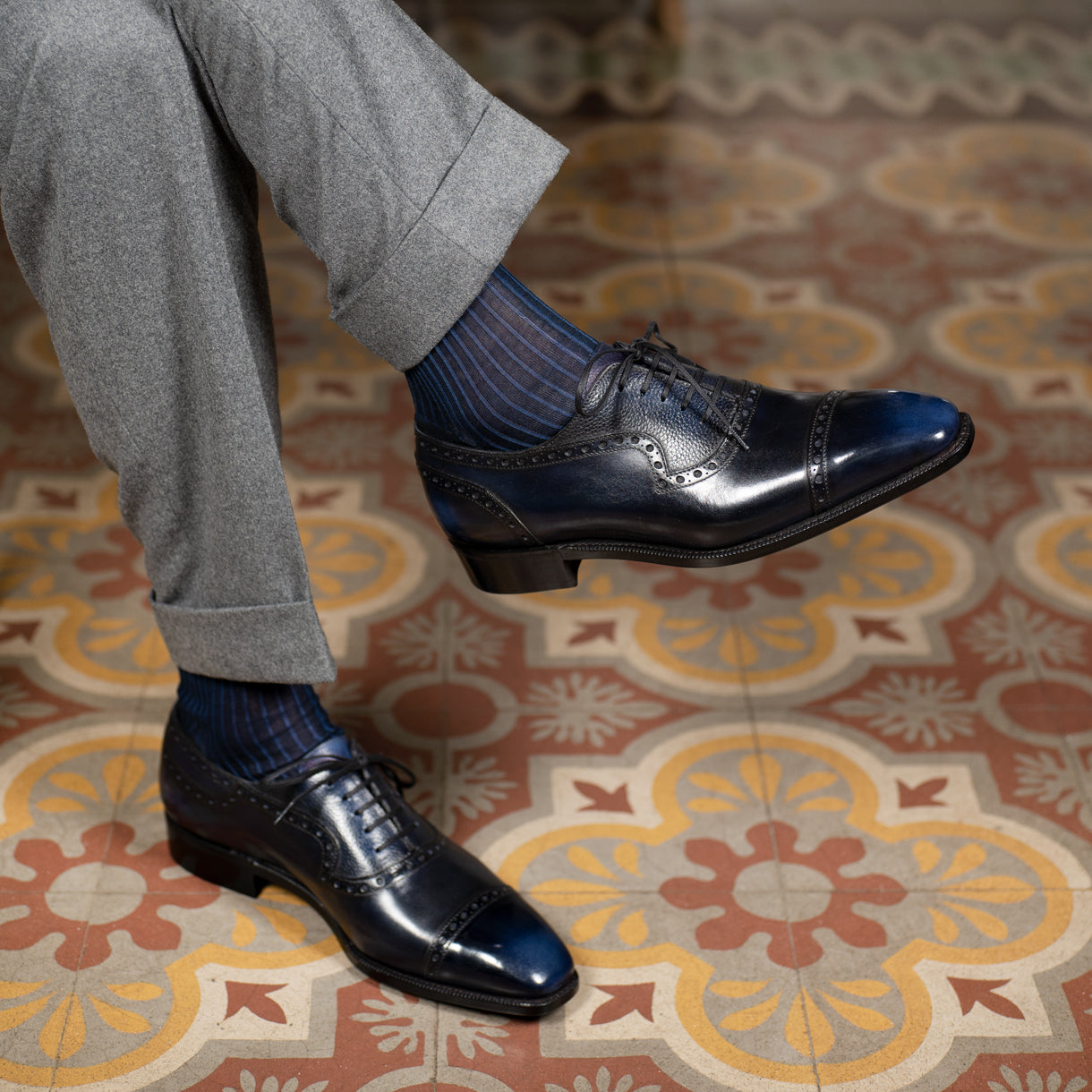
Conclusion
In summary, oxfords and derbys are both formal shoes, but they differ in their lacing systems, toe shapes, and overall formality. If you are new to men's leather shoes, you'll need to understand your requirements and what you will wearing your shoes with.
Oxfords are usually sleeker and more formal, while derbys are more relaxed and casual but can still be worn in the office.
Featured in photo:
A Beginners Guide to Quality Dress Shoes
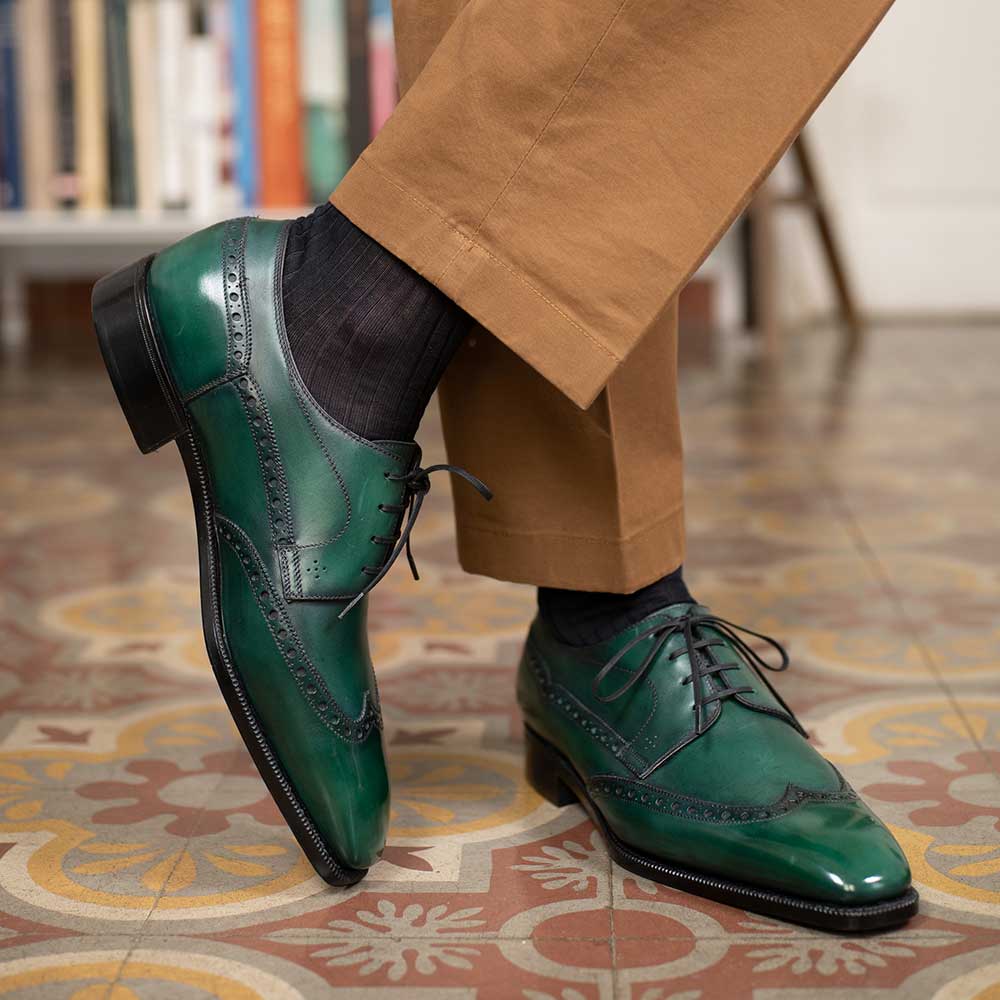
What makes a quality dress shoe?
Understand the details of a high-quality dress shoe.
Discover what makes a quality dress shoe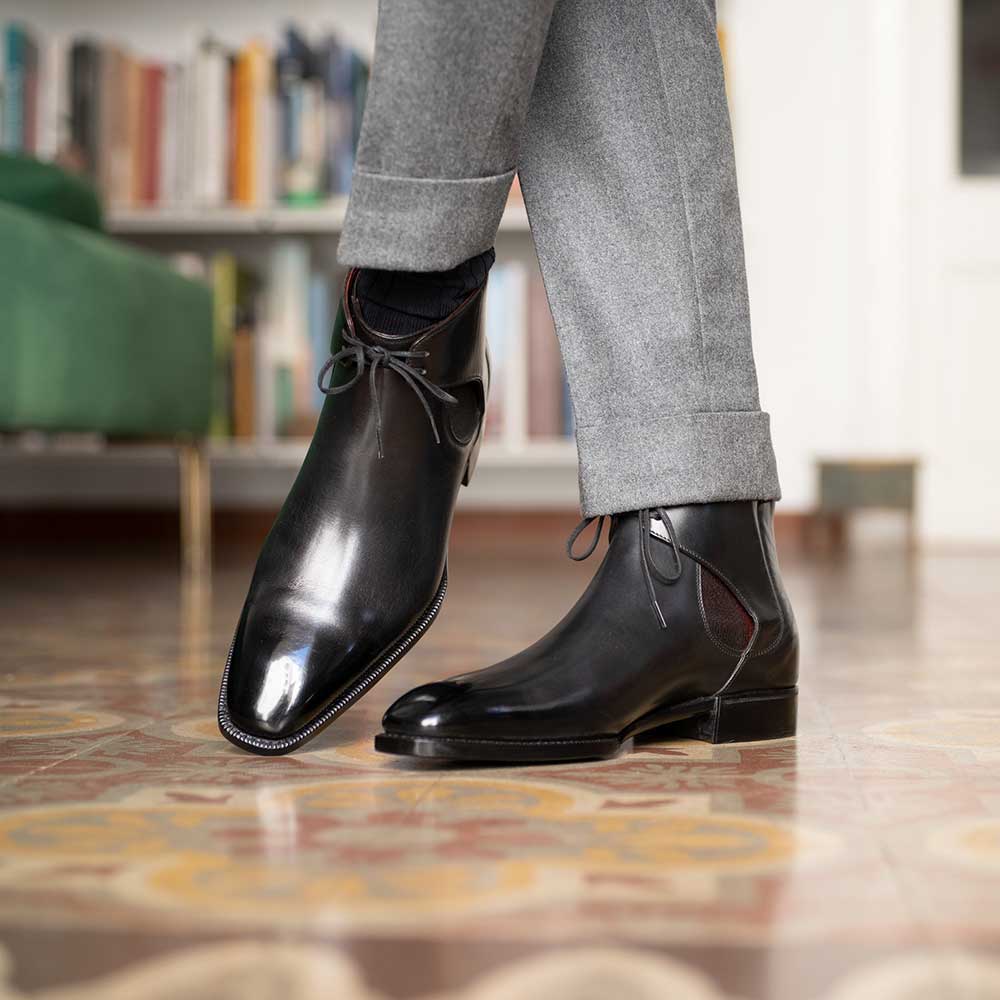
The Benefits of Goodyear-welted Shoes
Discover why Goodyear-welted is a hallmark of quality, durability, and timeless style.
Discover the benefits of Goodyear-welted
